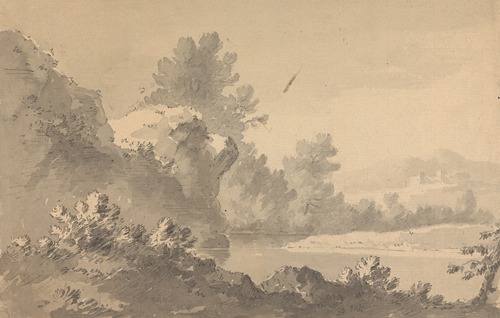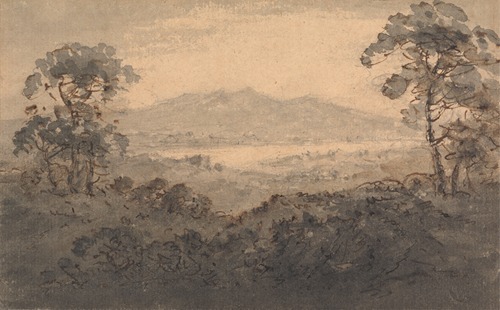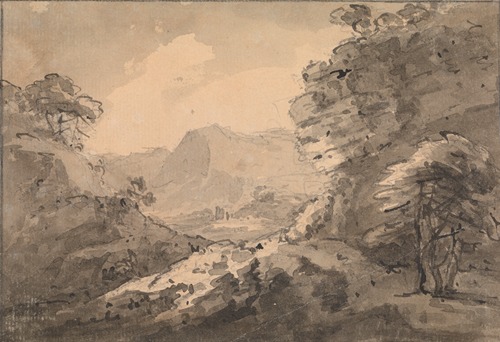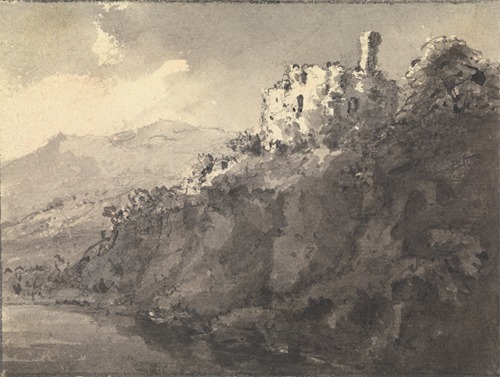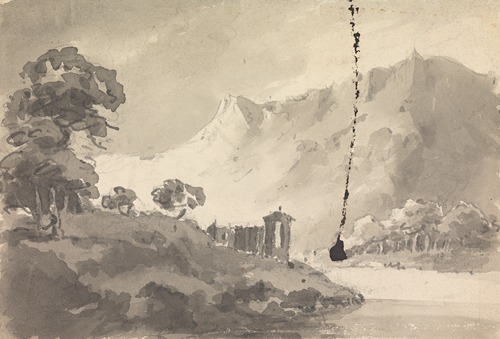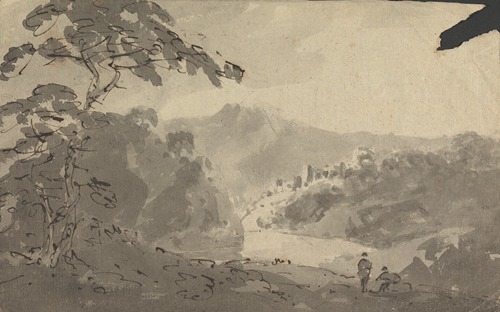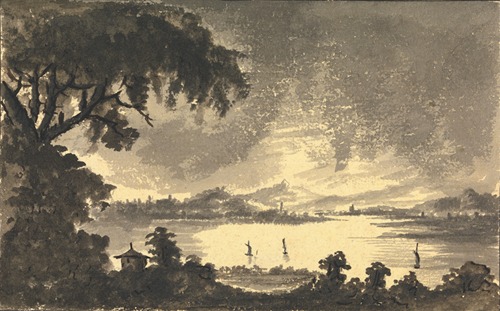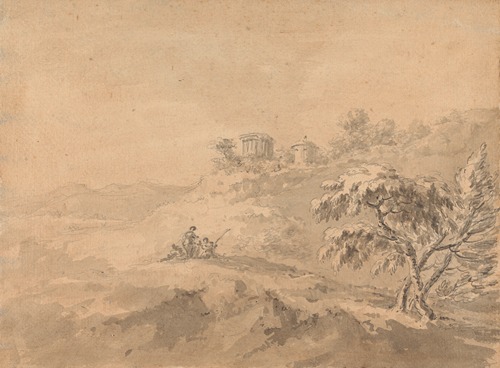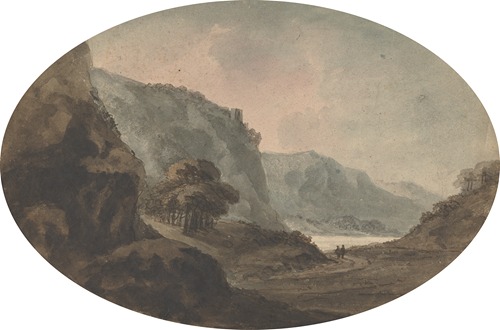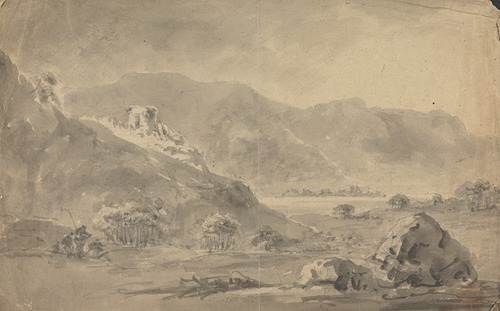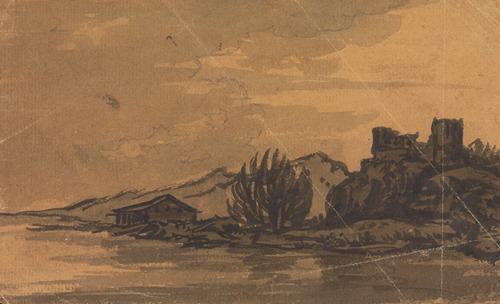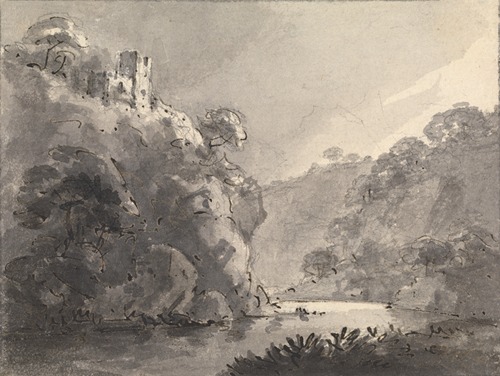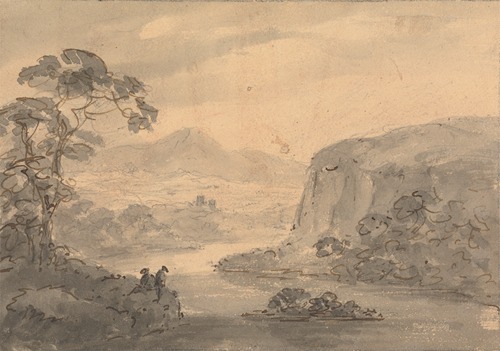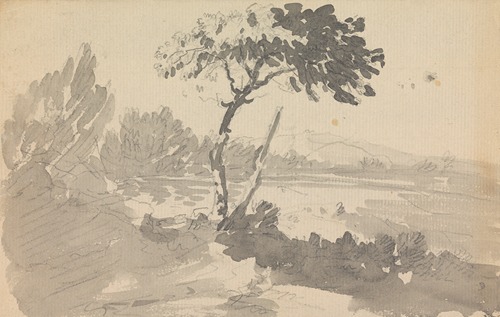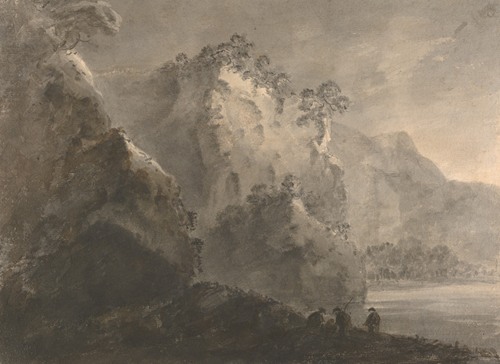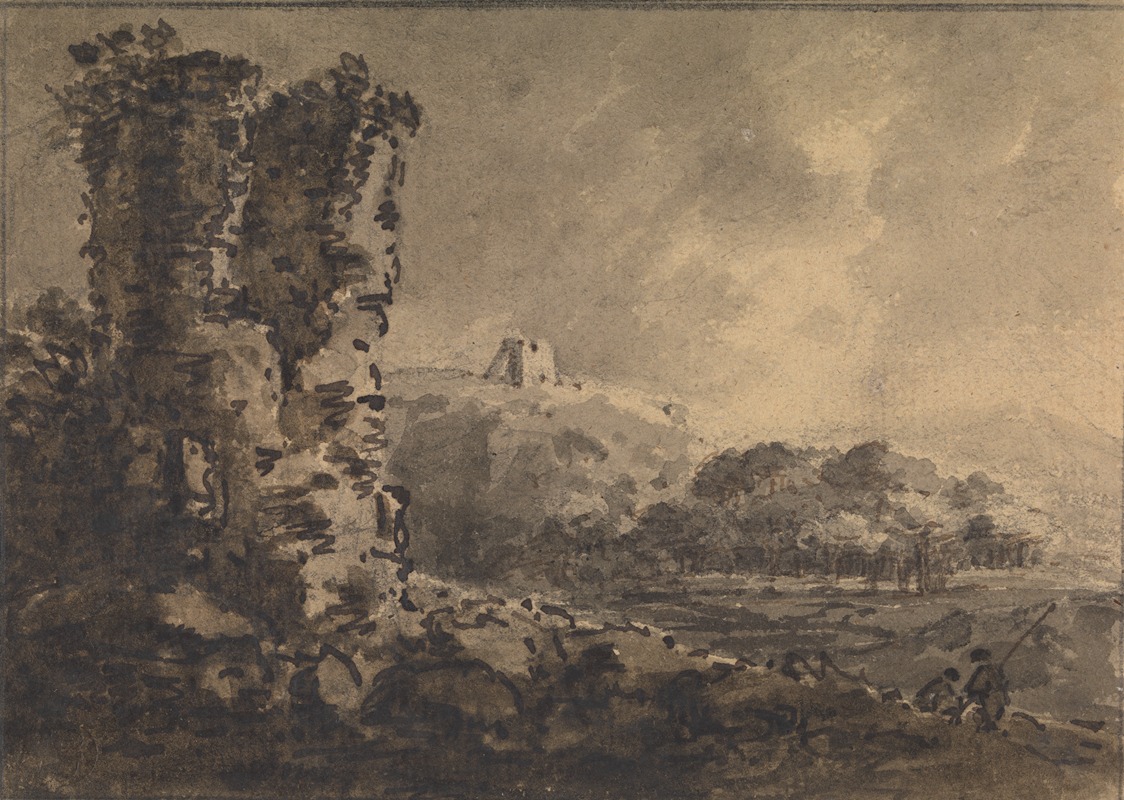
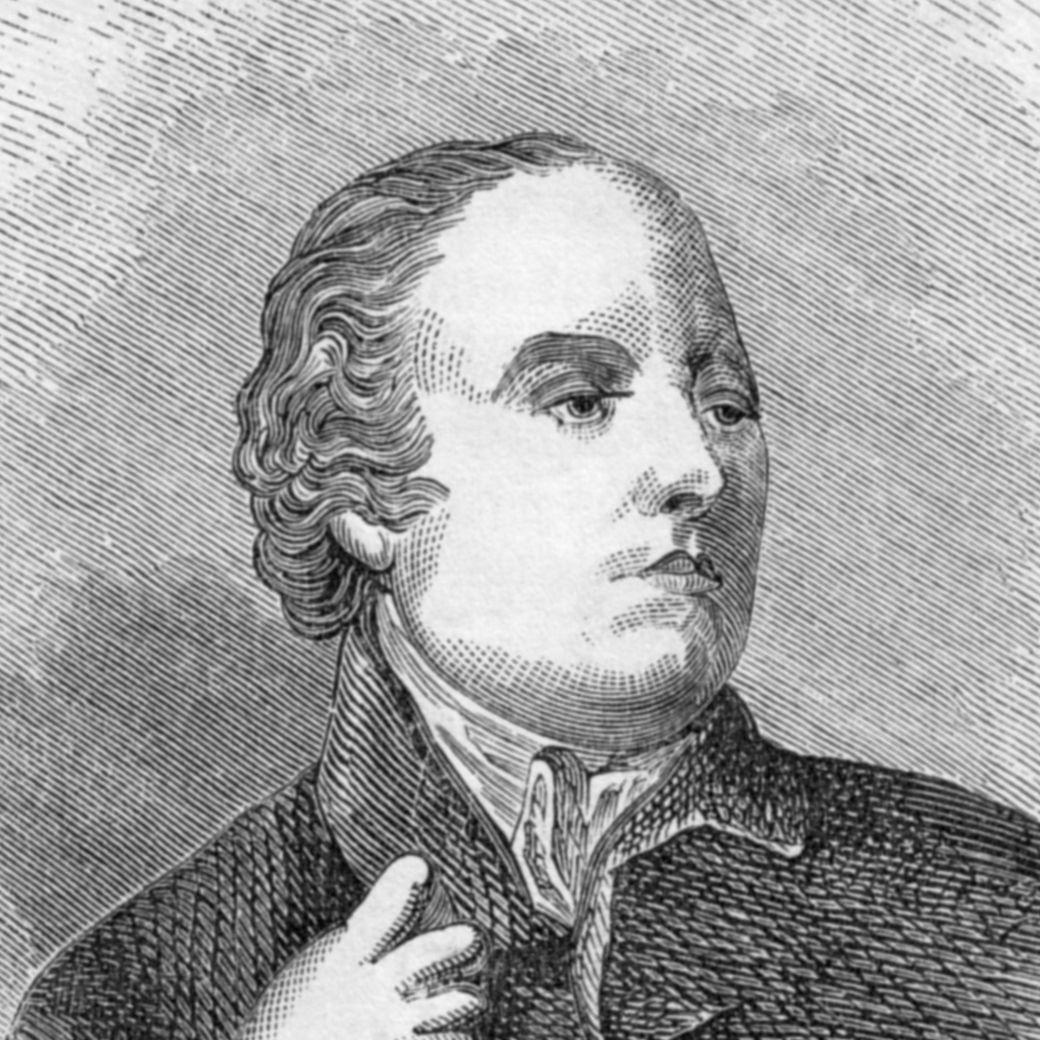
William Gilpin was an English artist, Church of England cleric, schoolmaster and author. He is best known as a travel writer and as one of those who originated the idea of the picturesque.
Gilpin was born in Cumberland, the son of Captain John Bernard Gilpin, a soldier and amateur artist. From an early age he was an enthusiastic sketcher and collector of prints, but while his brother Sawrey Gilpin became a professional painter, William opted for a career in the church, graduating from Queen's College, Oxford in 1748.
While still at Oxford, Gilpin anonymously published A Dialogue upon the Gardens... at Stow in Buckinghamshire (1748). Part guidebook to Stowe, part essay on aesthetics, it shows that Gilpin had already begun to develop his ideas on the picturesque. Unusually for the time, Gilpin showed an appreciation of wild and rugged mountain scenery, perhaps rooted in his Cumbrian upbringing. Even more unusually, he expressed ideas about the perception of beauty which were purely aesthetic and often divorced from other qualities of the object viewed, such as morality or utility.
After working as curate, Gilpin became master, and from 1755 headmaster at Cheam School. He was an enlightened educationalist, instituting a system of fines rather than corporal punishment and encouraging the boys to keep gardens and in-school shops. His broad intention was to promote "uprightness and utility" and give his pupils "a miniature of the world they were afterwards to enter." Gilpin stayed at Cheam until 1777, when he moved with his wife Margaret to become Vicar of Boldre in the New Forest, Hampshire. While there he took as a child pupil the future poet Caroline Anne Bowles. Another pupil was his nephew, the painter William Sawrey Gilpin. He was succeeded at Cheam by his son, another William Gilpin.
William Gilpin died at Boldre, Hampshire, on 5 April 1804 and was buried there on 13 April. He was survived by his wife, Margaret (1725 – 14 July 1807), to whom he was married for over 50 years. His older son, John Bernard, became British Consul for Rhode Island. His two daughters predeceased him.
